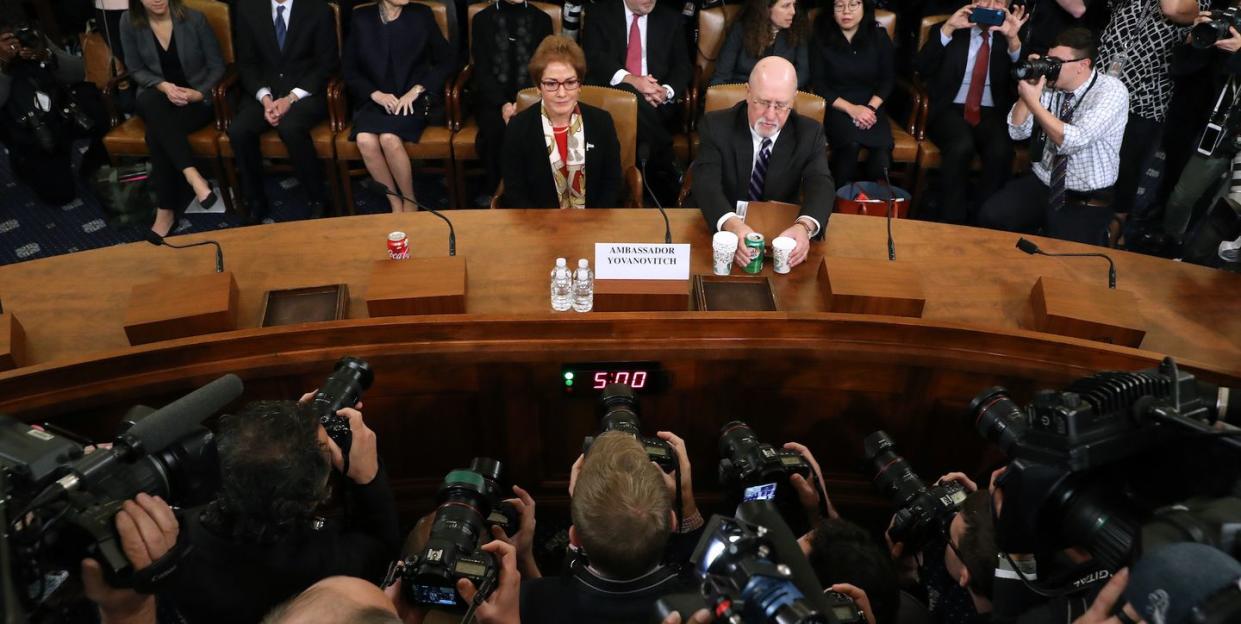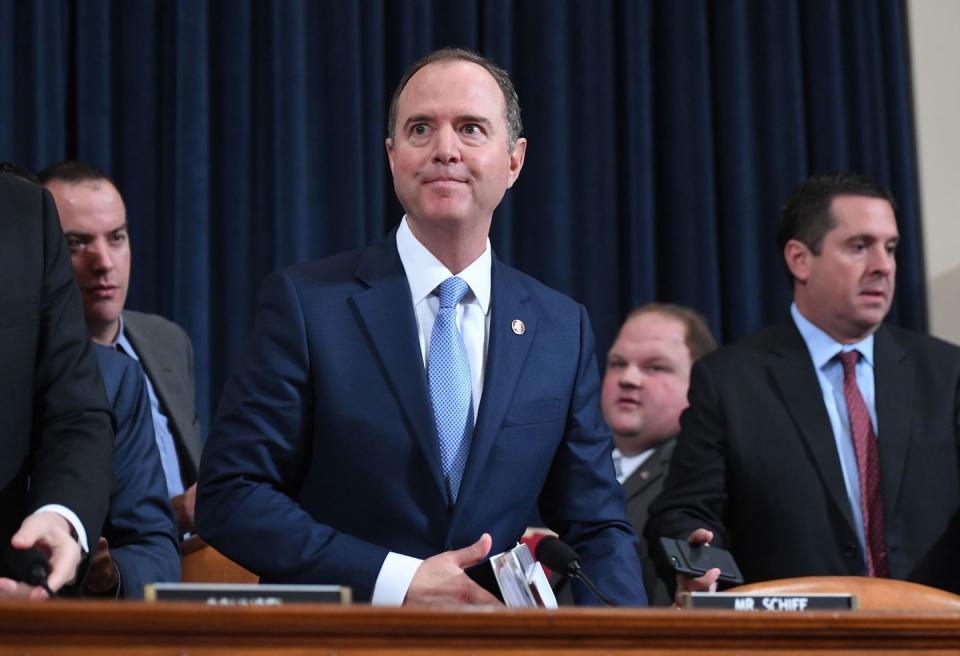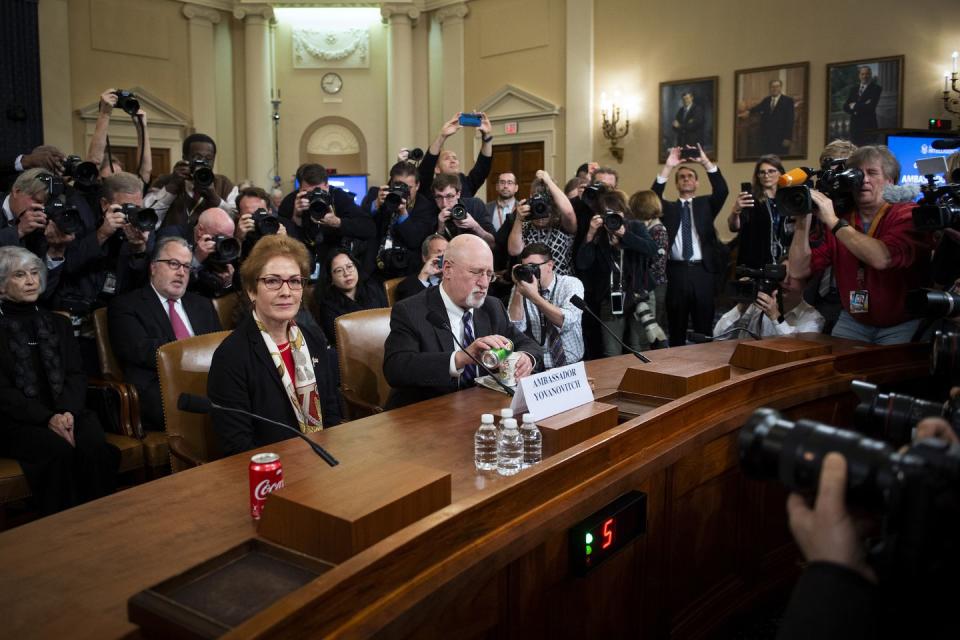Marie Yovanovitch Will Not Be Intimidated

WASHINGTON—The most extraordinary moment in the extraordinary testimony of former ambassador Marie Yovanovitch was contributed by the president* who’d fired her, for corrupt purposes, and came about because this president* is thoroughly incapable of not obstructing justice. Midway through the first compelling round of testimony, El Caudillo del Mar-a-Lago felt compelled to tweet the following:
Everywhere Marie Yovanovitch went turned bad. She started off in Somalia, how did that go? Then fast forward to Ukraine, where the new Ukrainian President spoke unfavorably about her in my second phone call with him. It is a U.S. President’s absolute right to appoint ambassadors...
Here was an impeachable offense being offered up in real time, and in response to the description of a conspiracy to commit several more. Committee chairman Adam Schiff was not going to let this one go by. He asked Yovanovitch to respond, and her reaction to the president*’s tweet was of a piece with her entire testimony: calm, reasoned, edged with sorrow and anger.
YOVANOVITCH: Well. I mean, I don't think I have such power, not in Mogadishu, and some are other places. I think that where I served over the years, I and others have demonstrably made things better, you know, for the U.S. as well as for the countries that I served in. Ukraine, for example, where there are huge challenges, including on the issue we're discussing today of corruption, huge challenges that they've made a lot of progress since 2014, including in the years I was there. I think in part in Ukraine, the people get the most credit for that, but a part of that credit goes to the work of the United States and to me as the ambassador in the, in Ukraine.

Schiff then asked Yovanovitch about the impact of this kind of presidential hooliganism on other members of the government and, in particular, the diplomatic corps.
SCHIFF: Ambassador, you've shown the courage to come for today to testify. Notwithstanding the fact you were urged by the White House or State Department not to. Notwithstanding you testified earlier, the president implicitly threatened you in that call record. And now the president in real-time is attacking you. What effect do you think that has on other witnesses willingness to come forward and expose wrongdoing?
YOVANOVITCH: I can't speak to what the president is trying to do, but I think the effect is to be intimidating.
At which point, Schiff put an edge on things.
SCHIFF: Well, I want to let you know, Ambassador, that some of us here take witness intimidation very, very seriously.
The morning’s dramatics centered in many ways about intimidation. Central to Yovanovitch’s remarkable narrative was the smear campaign waged by the White House button men in order to get her out of the way.

She spoke about how she got a phone call the same day that she was honoring a Ukrainian anti-corruption activist who’d been murdered in an acid attack, warning Yovanovitch that her position was imperiled. She spoke about how she was summoned back to Washington at 1 o’clock in the morning. At the time, she was the subject of a smear campaign orchestrated by Rudy Giuliani and amplified by a hack named John Solomon, then working at The Hill. She kept asking her superiors whether this was behind her sudden recall. They kept tap-dancing around the truth and, eventually, she'd had enough. She would not be intimidated. The morning’s testimony was all about the limits of fear and duty. A lot of people thought they could push Marie Yovanovitch past those limits. A lot of people were wrong.
Respond to this post on the Esquire Politics Facebook page here.
You Might Also Like

